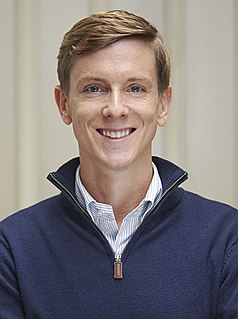A Quote by Chris Hughes
I really want to move away from the old model in which you have to rely on people giving $10 after a humanitarian crisis to a newer model where people give money but also their time and their skills, whatever they have, to the causes that are personally meaningful to them well before the crisis moment presents itself.
Related Quotes
Give the money directly to people who work hard. Instead of taking the money from the business and then filtering it through the horror of government programs, which is essentially giving it to social workers who live in Bethesda so they can drive their minivans and vote Democratic. Give them the money, so that they go and talk to the worker who is washing dishes, and they say, "Well, we want to help you, you see." And it would be better to help them by taking the money from that minivan-driving social worker and giving it directly to the guy who is really working hard by washing dishes.
We have to go from what is essentially an industrial model of education, a manufacturing model, which is based on linearity and conformity and batching people. We have to move to a model that is based more on principles of agriculture. We have to recognize that human flourishing is not a mechanical process; it's an organic process. And you cannot predict the outcome of human development. All you can do, like a farmer, is create the conditions under which they will begin to flourish.



































